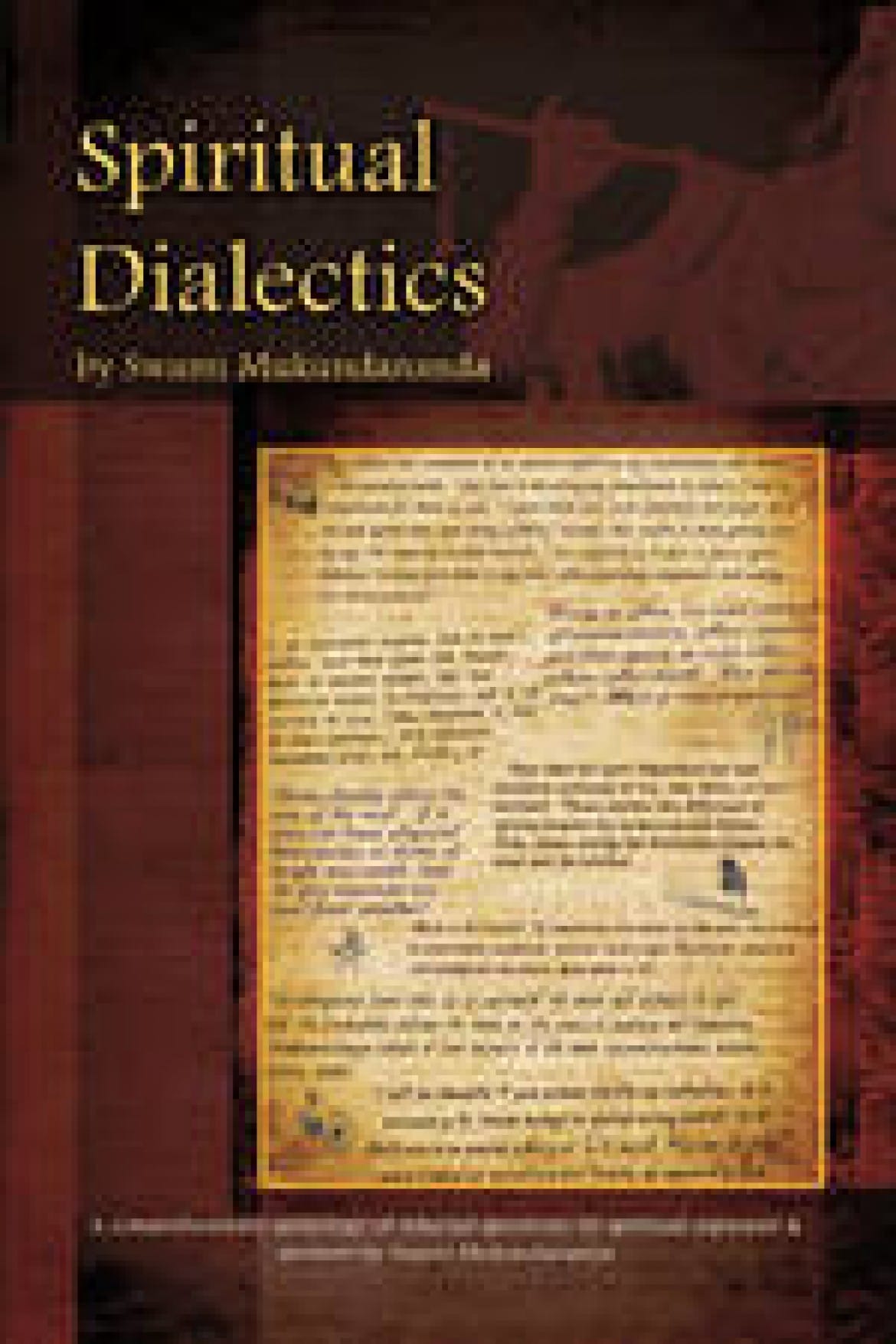Dear Devotees,
In philosophy, Dialectics is a method of investigating the nature of the Truth through discussions in the form of questions and answers.
Socrates used the dialectic process to instruct his students, and he vigorously encouraged them to question existing beliefs. Plato, his illustrious disciple, adopted the dialectical method in his famous book, “The Dialogues.” Another noted Greek philosopher, Aristotle, thought of dialectics as a search for the philosophical basis for science.
The German philosopher Hegel is often considered the father of Dialetics. Hegel believed that the evolution of ideas occurs through a dialectical process—that is, any concept gives rise to its opposite viewpoint; we then resolve this conflict and reach a synthesis. The synthesis is at a higher level of truth than the first two views.
Karl Marx applied the concept of dialectics to social and economic processes, and called his theory, “Dialectical Materialism.” Immanuel Kant coined the term “Transcendental Dialectic” to express the way to go beyond the constraints of human rationality.
This system of analysis of the truth through questions and answers has also been repeatedly used in the Vedic literature. It was the favorite technique of Divine descensions and great sages for imparting knowledge. The dialogues of these great personalities with their students and disciples have been chronicled in the revealed scriptures, and the consequential reservoir of knowledge created by these discussions has satiated the thirst of innumerable seekers.
The most famous amongst these is the Bhagavad Geeta, which is a dialogue between Arjun and the Supreme Lord Shree Krishna. Seeing his relatives and elders on the opposing side, in the battlefield of Kurukshetra, Arjun was confused about his duty. Shree Krishna imparted Divine knowledge by answering his questions, to enlighten him with the Absolute Truth.
The great Sage Ved Vyas wrote the Shreemad Bhagavatam entirely in the dialectic form. He included in it a number of dialogues, such as between Jada Bharat and Rahugan, Vidur and Maitreya, Uddhav and Shree Krishna, etc. Shukadev Paramhans recited the Bhagavatam with all these dialogues to King Parikshit. The Bhagavatam was then recited by Suta Goswami to Shaunak Muni, and he included the question-answers between Shukadev and Parikshit in it. Finally, Ved Vyas again compiled the Bhagavatam, and added to it all the discussions between Suta and Shaunak as well.
The Dialectic process is also a part of many of the Upanishads. The famous Kathopanishad is a dialogue between Nachiketa and Yamraj. In the Prashnopanishad, the sage Pippalad is questioned by six pupils:
1.Sukesha, the son of Bharadwaja. 2. Satyakama, the son of Shibi. 3. Sauryayanee, the descendant of Garga. 4. Kaushalya, the son of Ashwala. 5.Bhargava of the Bhrigu Gotra. 6. Kabandhi, the son of Katya. The discussion with each of them forms a separate chapter of the Upanishad.
Another famous scripture based on the dialectic process is the Yoga Vasishtha. This is dialogue between Lord Ram and his Spiritual preceptor Maharshi Vasishtha. The question and answer system also makes up many chapters of the Ramayan, Mahabharat, and many other scriptures.
The “Khandan Mandan padhati” of lecturing is also based on the dialectic process. Here, the speaker creates a doubt in the minds of the listeners, and then goes on resolve it. The idea is that when the curiosity is aroused and then satisfied, the knowledge sinks deep in.
Instead, if the knowledge is given without initially creating a conflict in the minds of the listeners, it does not create the same impact.
Many devotees had requested for a book written in Question-Answer form that could help them resolve the innumerable doubts in their minds. We are about to begin work on this, and will first compile questions for this purpose. We have access to a number of Q and A sessions conducted over the years, and also the questions asked via the website and this google group.
However, to make the book comprehensive, I would like to invite all of you once again to submit any questions that may come to your mind, as you traverse the spiritual path.
If they get included in the book, your questions will also benefit other seekers of the Truth like yourself. We will not print the name of the questioner without permission.
Your ever well-wisher,
Swami Mukundananda
Member of JKYog google group can Click Here to post question or write directly to Swamiji


